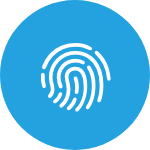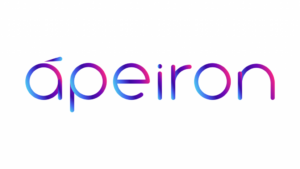
NOBODY CAN USE IT, ONLY YOU!
You are the password!
My ID is a multi-factor biometric authentication technology focused on mobile devices.
My-ID creates a digital biometric identity and you can always carry it with you in your biometric wallet.

BIOMETRIC IDENTITY ALWAYS WITH YOU

Without passwords, tokens and pins
Access only through multi-factor authentication: face, voice and vitality detection.

Protect your data in the cloud
You can encrypt files, documents, videos, posts and transfer them by e-mail. You can store them on the cloud in biometric format.

Secure transactions
access the system after the multi-factor biometric check
CHARACTERISTICS
No fraud
Nobody can use My ID only you
One face, one voice, one person
My-ID creates a biometric digital identity
No phishing
No reuse of credentials
Biometric MFA
Multi-factor biometric authentication
Biometric web app access
Biometric control during access
Biometric access to the workstation
Only you with your biometric access
BYOD
Carry your identity with you at all times
PSD2 / GDPR compliance
All PSD2 rules verified; no problems on GDPR standard verification
Want to find out more?
FURTHER FUNCTIONALITIES AND AREAS OF APPLICATION
Detection of vital parameters
The MY-ID system identifies the person with biometric certainty through face, voice and vitality, and uses dedicated algorithms to detect their vital parameters.
Are you interested
in My ID?
Fill in the form to receive more information and you will be contacted by one of our sales consultants.
CONTACT US
THE IMPORTANCE OF DIGITAL BIOMETRIC IDENTITY
MY-ID
FAQ
Biometrics is an automated technology used to recognise persons using physiological identifiers. Biometrics covers a variety of technologies in which people’s unique identifiable attributes are used for identification and authentication. These include a person’s fingerprint, face, iris, voice, palm prints, which can be used to validate the identity of individuals. Biometric data are unique to each person, so they can be used in almost any application that requires accurate identification or verification of any individual
My-ID contains a facial identification system that does not require any advanced hardware, as it can be used with existing image capture devices ios and android smartphones, webcams, security cameras, etc.
Usually, these systems extract certain features from face images and then perform face matching using these features. A face does not have as many uniquely measurable features as fingerprints and irises, so the reliability of facial recognition is slightly lower than these other biometric recognition methods. However, it is still suitable for many applications, especially considering its convenience for the user. Facial recognition can also be used together with fingerprint recognition or another biometric method to develop more security-critical applications. The multi-biometric approach, followed by My-ID, is particularly important for (1-to-many) identification systems. In general, identification systems are very convenient to use because they do not require any additional security information (smart cards, passwords, etc.). However, the use of 1-to-many matching routines with only one biometric method may lead to a higher probability of false acceptance, which may become unacceptable for applications with large databases. The use of facial identification as an additional biometric method can drastically reduce this effect. This multi-biometric approach also helps in situations where a certain biometric characteristic is not optimal for certain user groups.
It offers fast and reliable identification with real-time face detection, the ability to process multiple faces in a single frame and fast face matching in 1-to-1 and 1-to-many modes.
The My-ID face recognition algorithm implements advanced face localisation, enrolment/enrolment and matching using robust digital image processing algorithms based on deep neural networks: Simultaneous processing of multiple faces. The face algorithm performs fast and accurate detection of multiple faces in live video streams and still images. – Gender classification. Optionally, gender can be determined for each person on the image with a predefined degree of accuracy during pattern extraction. – Real-time face detection. A conventional facial identification system can be fooled by placing a photo in front of the camera. The face algorithm is able to prevent this type of security breach by determining whether a face in a video stream is ‘live’ or a photograph. – Live detection :can be performed in passive mode, when the engine evaluates certain facial features, and in active mode, when the engine evaluates the user’s response to perform actions such as blinking or head movements.
My-ID optionally allows the estimation of a person’s age
My-ID allows for a minimum threshold of image quality
PARTNER









